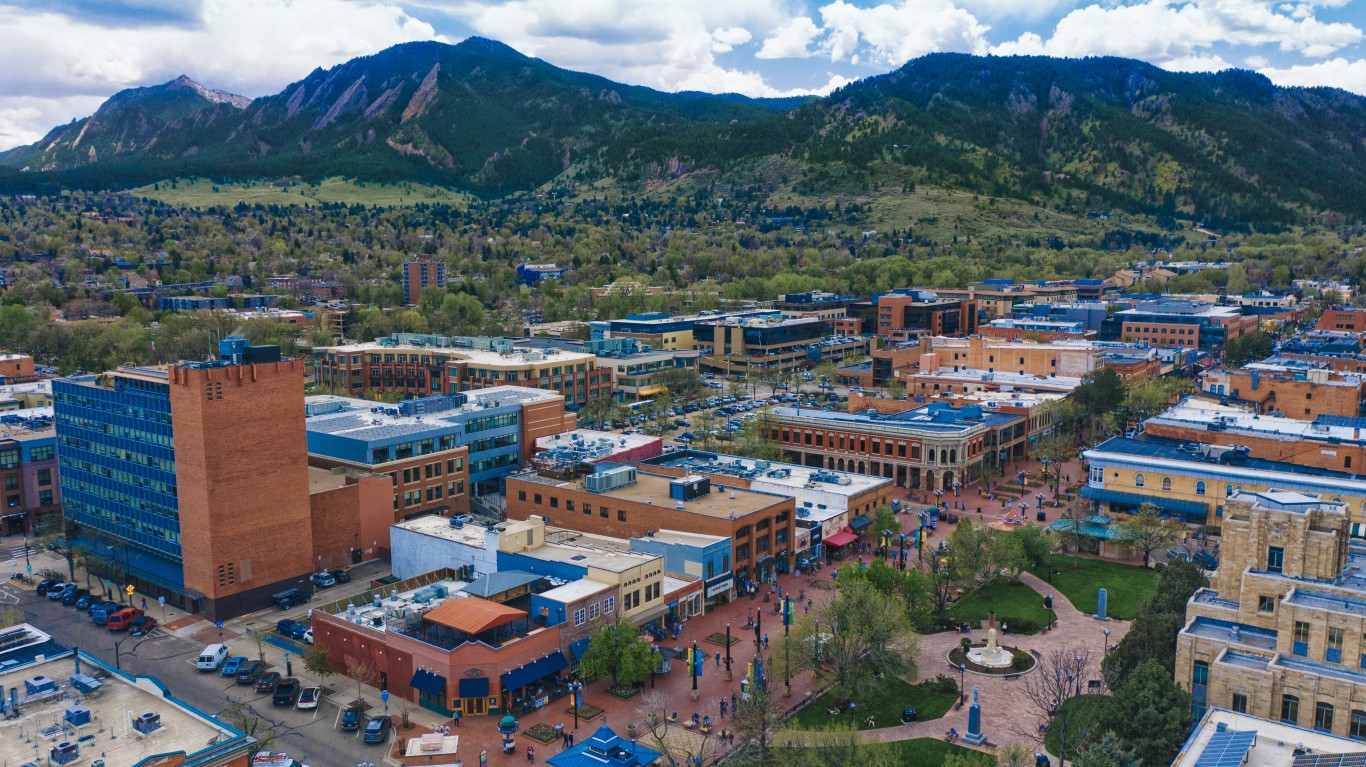
The cause and effect drawn between the level of education someone attains in America and that person’s future earning power has been well established. People with less than a high school degree tend to be poorly paid, and it is harder for them to find jobs. People with a college degree or better tend to be much better paid, and the unemployment rate among these Americans tends to be low compared to the general population.
Not all high schools and colleges are made the same. There is an industry of rating these nationwide to help parents and students choose and where to get their college degrees.
A college education may not be for everyone, but it remains a valuable asset that can offer better access to career opportunities, improve job security and increase earning potential. Nationwide, an estimated 33.1% of American adults 25 and older have a bachelor’s degree or higher. Educational attainment rates vary considerably across the country, however, and in some major metropolitan areas, the share of adults with a bachelor’s degree is well above the national average.
Using education data from the U.S. Census Bureau, 24/7 Wall St. identified the most educated metro area in the United States. In several of the metros we considered, more than half of the adult population has at least a bachelor’s degree.
The average weekly wage for a college-educated worker in the United States is about 67% higher than it is for those with no more than a high school diploma. Additionally, college-educated Americans are less than half as likely to be unemployed as those who only finished high school. In most metro areas we examined, the typical household earns more than the national median household income of $65,712, and most have a lower five-year average unemployment rate than the comparable 4.5% national figure.
The most educated metro in America is Boulder, Colorado. Here are the details:
- Adults with at least a bachelor’s degree: 64.8%
- Median earnings, all workers: $51,446 (12th highest)
- Median earnings, bachelor’s degree holders: $57,394 (62nd highest)
- Estimated unemployment rate, all workers: 2.5% (tied for 95th lowest)
- Estimated unemployment rate, adults with at least a bachelor’s degree: 2.4% (tied for 244th lowest)
Methodology: To determine America’s most educated metro area, 24/7 Wall St. reviewed one-year estimates of the percentage of adults 25 years and over with at least a bachelor’s degree from the U.S. Census Bureau’s 2019 American Community Survey (ACS).
We used the 384 metropolitan statistical areas as delineated by the United States Office of Management and Budget and used by the Census Bureau as our definition of metros.
All 384 metros were ranked by their bachelor’s degree or higher attainment rate. Since many metros cross state lines, the metro was assigned to the state of its first-listed principal city.
Additional information on the median earnings for adults 25 and over with earnings that hold a bachelor’s degree, median earnings for adults 25 and over with earnings for all levels of educational attainment, unemployment rates for the 25- to 64-year-old population that have at least a bachelor’s degree, and unemployment rates for the 25- to 64-year-old population for all educational attainment levels are also one-year estimates from the 2019 ACS.
Click here to see all the most educated cities in America.
In 20 Years, I Haven’t Seen A Cash Back Card This Good
After two decades of reviewing financial products I haven’t seen anything like this. Credit card companies are at war, handing out free rewards and benefits to win the best customers.
A good cash back card can be worth thousands of dollars a year in free money, not to mention other perks like travel, insurance, and access to fancy lounges.
Our top pick today pays up to 5% cash back, a $200 bonus on top, and $0 annual fee. Click here to apply before they stop offering rewards this generous.
Flywheel Publishing has partnered with CardRatings for our coverage of credit card products. Flywheel Publishing and CardRatings may receive a commission from card issuers.
Thank you for reading! Have some feedback for us?
Contact the 24/7 Wall St. editorial team.


